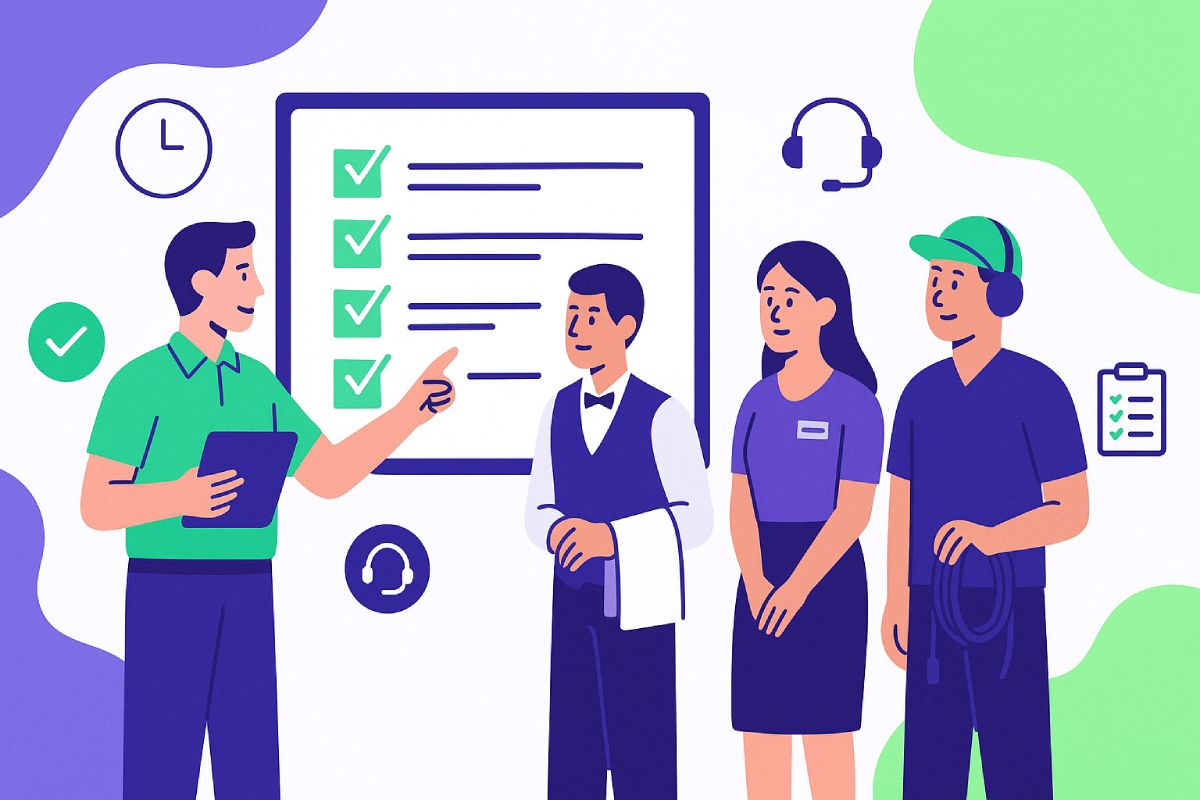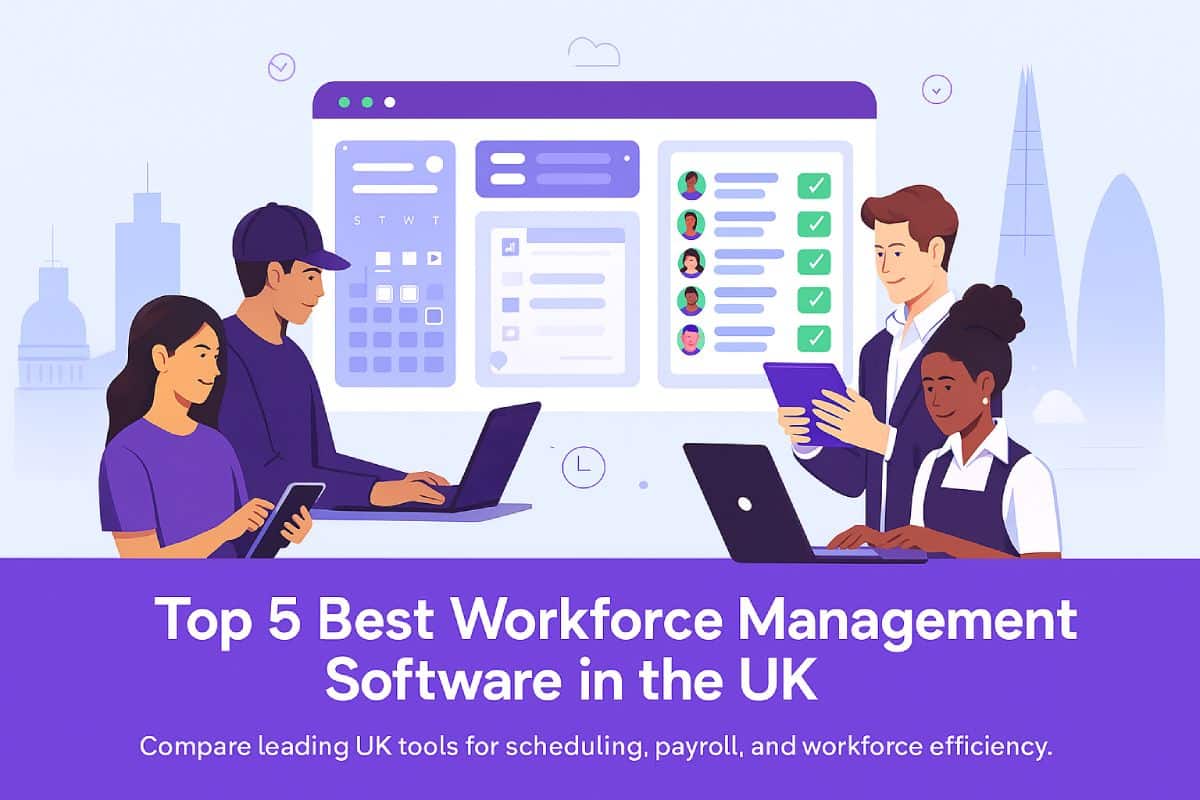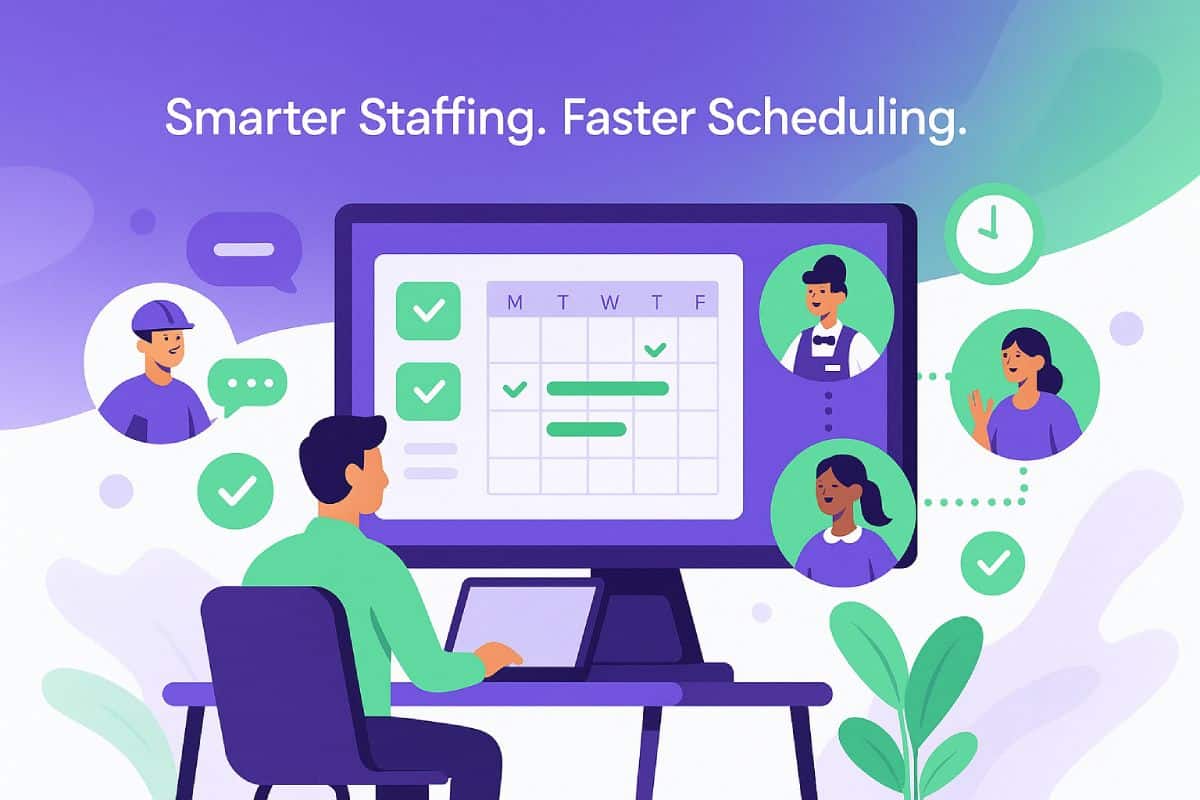Why Temporary Event Staff Make or Break Your Event
Every successful event relies on its people. Behind the lighting, catering, and guest experience are the teams of temporary event staff who keep everything running smoothly. From large-scale festivals and sporting events to corporate functions and product launches, agencies depend on short-term workers to deliver.
But managing temporary staff is rarely simple. Last-minute cancellations, unclear schedules, and poor communication can quickly disrupt even the best-planned events.
Event organisers need a structured approach, and increasingly, the right software – to ensure their teams are supported, motivated, and performing at their best.
In this guide, we’ll explore how to manage and schedule temporary event staff for maximum success. We’ll look at common challenges, best practices, and how Liveforce event staffing software simplifies every step of the process.
Why Temporary Event Staff Are Essential
Events are dynamic, with fluctuating staffing needs that permanent employees alone cannot meet. Temporary event staff fill the gaps and bring flexibility that agencies and venues rely on.
Typical roles include:
- Front-of-house staff – handling guest registration and customer service.
- Hospitality and catering teams – wait staff, bar staff, and food service.
- Technical crew – lighting, sound engineers, AV support, and production staff.
- Promotional and brand ambassadors – engaging attendees and representing brands.
- Logistics and support – from runners to stagehands.
According to industry research, the UK temporary staffing market was valued at £30.85bn in 2018, with steady growth since. The demand is clear: events cannot operate without reliable, flexible staffing.
Challenges in Managing Temporary Event Staff
While temporary staff bring flexibility, managing them presents unique challenges:
- Last-minute cancellations – No-shows can leave teams stretched and affect guest experience.
- Miscommunication – Staff may arrive late, underprepared, or unsure of responsibilities.
- Skills mismatch – Assigning the wrong staff to specialised roles can disrupt operations.
- Compliance risks – Without proper checks, agencies risk non-compliant workers entering events.
- Low morale – If staff feel unsupported, performance drops and turnover increases.
Solving these challenges requires a combination of preparation, clear processes, and the right technology.

Best Practices for Scheduling and Managing Staff
Strong management ensures your temporary workforce feels supported, respected, and ready to perform. Here are the essentials:
1. Plan Ahead
Create schedules in advance to avoid last-minute stress. Early planning ensures every role is covered and gives staff enough time to prepare.
2. Match Skills to Roles
Keep an updated database of staff skills and certifications. Assigning the right people to the right jobs improves efficiency and reduces mistakes.
3. Provide Training and Resources
Even experienced staff need role-specific training. A clear briefing helps align everyone with event goals. Supply uniforms, ID badges, and any required equipment.
4. Communicate Clearly
Staff should always know their shifts, responsibilities, and point of contact. Use real-time communication to update staff on last-minute changes.
5. Respect Staff Time
Offer fair shifts and rest breaks. Burnt-out staff are less effective, while well-treated staff are more engaged.
6. Recognise and Reward Effort
Simple acknowledgements, meals, or small tokens of appreciation boost morale and encourage commitment.
Industry Insights: Trends in Temporary Staffing
The temporary staffing market is evolving rapidly, shaped by both demand and technology.
- Event growth: Conventions and events grew by 44% between 2010 and 2020, increasing reliance on short-term staff.
- Digital shift: Agencies are moving away from spreadsheets and emails towards dedicated event staffing platforms.
- Workforce expectations: Staff expect mobile-first tools that allow them to view schedules, apply for shifts, and track payments.
- Compliance focus: Agencies face stricter regulations, making centralised compliance management essential.
These trends mean agencies that modernise their staffing processes will have a competitive advantage.
How Liveforce Simplifies Event Staffing
Liveforce is designed specifically for agencies, venues, and suppliers who manage large volumes of temporary event staff. Unlike generic rota tools, Liveforce is built around the complexities of the events industry.
Smart Scheduling
Create and share rotas in minutes, covering multiple projects and locations.
Skill Matching
Assign staff to shifts based on availability, qualifications, and past performance.
Real-Time Communication
Send instant updates and notifications to avoid confusion.
Crew App for Staff
Temporary workers can:
- Apply for jobs directly
- Manage shifts in one calendar
- Track confirmed work and payments
- Keep profiles and skills updated
Compliance Control
Keep centralised staff records, ensuring only compliant workers are booked for shifts.
Case Example: Smooth Staffing at a Major Event
Imagine a hospitality agency staffing Wimbledon. Hundreds of shifts across multiple venues had to be filled quickly and reliably.
With spreadsheets, the process would take days. But using Liveforce, the agency:
- Built detailed schedules in hours
- Matched staff to roles based on experience
- Sent real-time updates when shifts changed
- Gathered feedback post-event for continuous improvement
The outcome? Staff were informed, engaged, and motivated. The client experienced a flawless event delivery.

Checklist: Managing Temporary Event Staff
For quick reference, here’s a checklist to follow:
✅ Build schedules in advance
✅ Match staff skills to event roles
✅ Provide training and resources
✅ Communicate shifts and updates clearly
✅ Ensure staff welfare with fair shifts
✅ Use software to manage compliance and scheduling
✅ Recognise and reward staff efforts
Happy Staff, Successful Events
The success of your event depends on how well you manage your people. By following best practices and adopting the right technology, you can ensure your temporary event staff are motivated, compliant, and performing at their best.
Liveforce makes event staffing seamless – saving time, reducing admin errors, and creating a better experience for both agencies and crew.
👉 Book your demo today and transform the way you manage event staff.
FAQs
Use event staffing software like Liveforce to plan ahead, match skills to roles, and share real-time updates
Software reduces admin, prevents miscommunication, and ensures compliance, especially when managing large teams
Respect their time, provide fair shifts, and recognise effort with positive feedback or small incentives
Liveforce is purpose-built for event staffing. It combines smart scheduling, compliance checks, and a crew app – giving agencies and staff a streamlined, mobile-first experience
Hospitality suppliers, festival organisers, recruitment agencies, venues, and experiential marketing companies all rely heavily on temporary staff.





